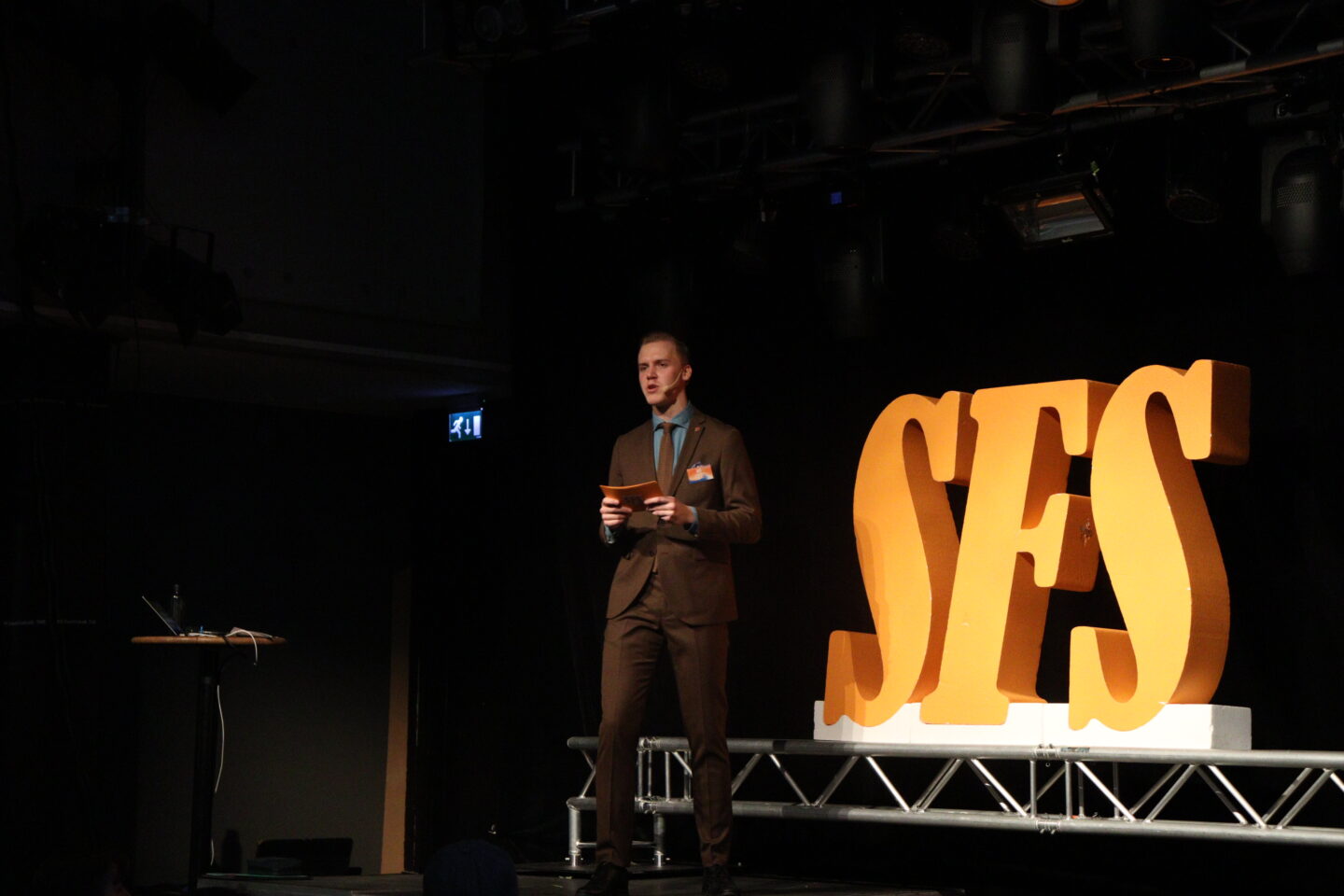The 2023 spring member meeting in Stockholm kicked off on the 7th of February. This time we are graciously hosted by the THS Student Union at KTH and the Swedish Defence University student union.
SFS Vice President Jacob Färnert welcomed around 70 student representatives with the following speech.
”A quick view of the daily news and you will discover that our society is in somewhat of a tense state of mind. Human civilization has constantly been facing great challenges, so this is not something new. However, the largest challenges known to mankind, such as climate change, fighting poverty, world peace or good health and well being, is in my opinion overshadowed by the current events that Sweden is facing at the time. NATO-application, issues with Turkey, gang crime and the state’s inability to face basic needs of the citizens regarding public safety are the main questions on the agenda.
It’s almost a bit of a populist thing that these recent developments take away focus from the greater challenges, where we really need to come together and create solutions for the long run. But of course, both need to be solved. And if we put this into the context of this member’s meeting, and especially in context of the two universities’ role in this, we can see both good and bad consequences. It’s a good thing that the society is more aware that we need both research and educated citizens when it comes to a) technical and engineering issues which can be found here at KTH and b) knowledge about defense and security policy which can be found at The Swedish Defence University.
With a greater focus on these questions, we as students and university representatives get the opportunity to put forward the importance of higher education and research, and describe how we can contribute. On the other hand, it also creates a will from politics to steer the higher education institutions in the most favorable way. Higher education institutions will and can of course contribute to the great challenges we face today, however, we need the freedom to conduct our business without the hand of the politics involved.
And we students notice this steering in our education. It can come in different forms. Larger student groups so that the university can produce as many students as possible, less areas on campus where students can study, less time with your teacher, removal of external speakers at your program or greater external steering in course plans to ensure that the students learn what the political side wants. This can be seen in many different fields and I’m sure that a lot of you here today have experienced this. If we take The Swedish Defence University for example, how do you as a student union representative even react or act when the Swedish parliament decides the following: ”we are going to educate more people for the military and defense authorities, end of story.”. Total lack of institutional awareness and that higher education can’t be scaled up in that way without facing major issues.
It’s exciting with more focus and resources for higher education, but we as students need to stay aware and rise to challenge these types of political steering. The autonomy of the universities are key for securing a quality education and student influence. And the universities and its students are capable of noticing the surrounding society and its challenges. We do not need the helping hand.
Therefore, SFS is part of a project where we join forces with the universities and trade union of the university teachers to secure greater protection in the Swedish constitution for higher education institutions and prevent damaging forms of political steering. This is a complex project and our goal is to finish constitutional change in 2028 or 2032. This shows the importance of student influence.
The student voice needs to be consistent. We are part of an environment where processes take a very long time. And together we can create a strengthful student voice, make the society aware of issues regarding and make a change. Together we are strong, regardless if we are active in a local student union at a university or in an organization like SFS where we operate towards the government.”
